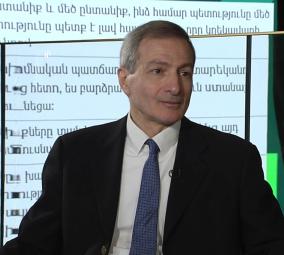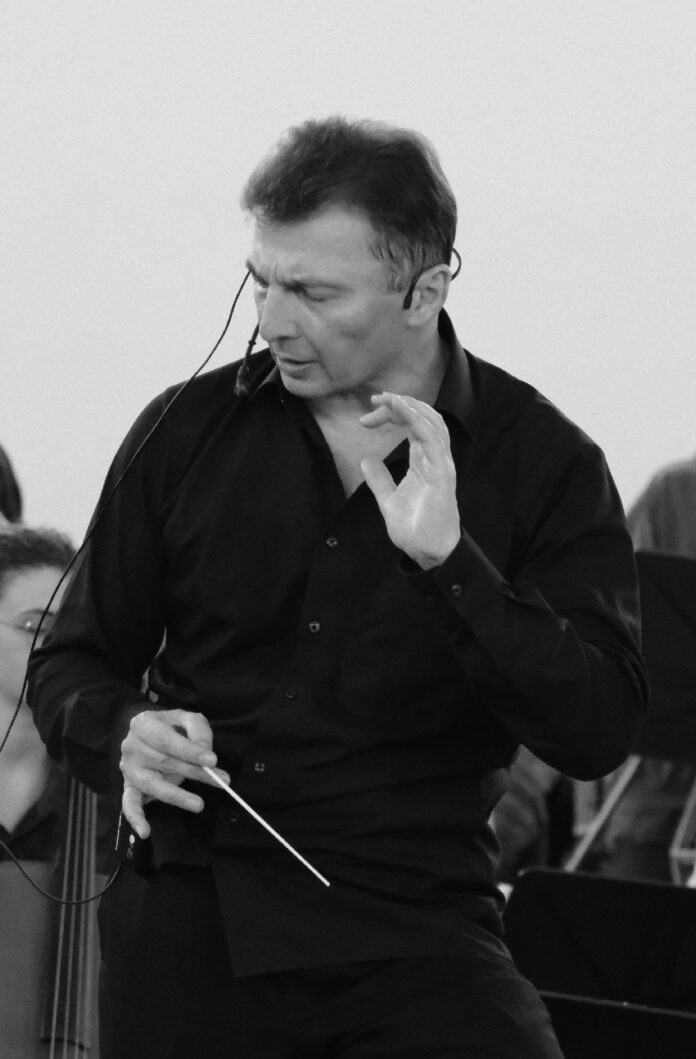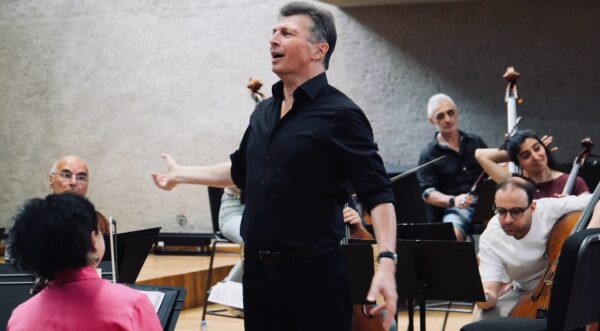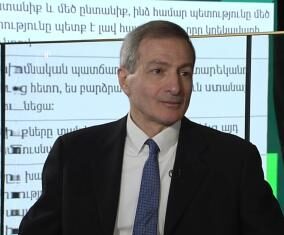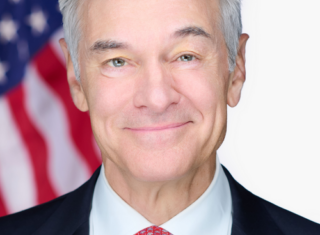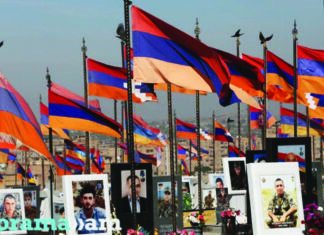YEREVAN — Conductor, choirmaster and pianist Luc Baghdassarian was born in Geneva, where he studied at the Conservatoire Supérieur de Musique de Genève, where he obtained a first prize in piano virtuosity in Maria Tipo’s class and a first prize in chamber music. He perfected his conducting skills with conductors Karl Oesterreicher and Erwin Acell in Vienna, as well as in Florence and Milan with Carlo Maria Giulini during five years. His many concerts in Europe, Canada and Argentina (as a concert artist, chamber musician and conductor) have earned him an excellent reputation. He conducted many prestigious orchestras and choirs in Switzerland, Armenia, France, the US, Romania, Italy, Russia, etc. He won first prizes at the international conducting competitions in Grenchen (Switzerland) in 2002 and Vienna in 2005.
My interview with him took place on July 6, at Komitas Hall of Yerevan, a day after his concert with National Chamber Orchestra of Armenia. His manager, Céline Dall’Aglio, was present.
Dear Maestro, have you counted how many times you have visited Armenia?
I do not know exactly, but it is between 25 and 30.
I remember you as a choir conductor.
Yes, my first concert as conductor with choir and orchestra was here, in this Komitas Hall, which was in 1998, with Coronation Mass by Mozart. Two years ago, I had the privilege to conduct Fauré’s Requiem with the wonderful Hover choir of Armenia, which was really amazing.
